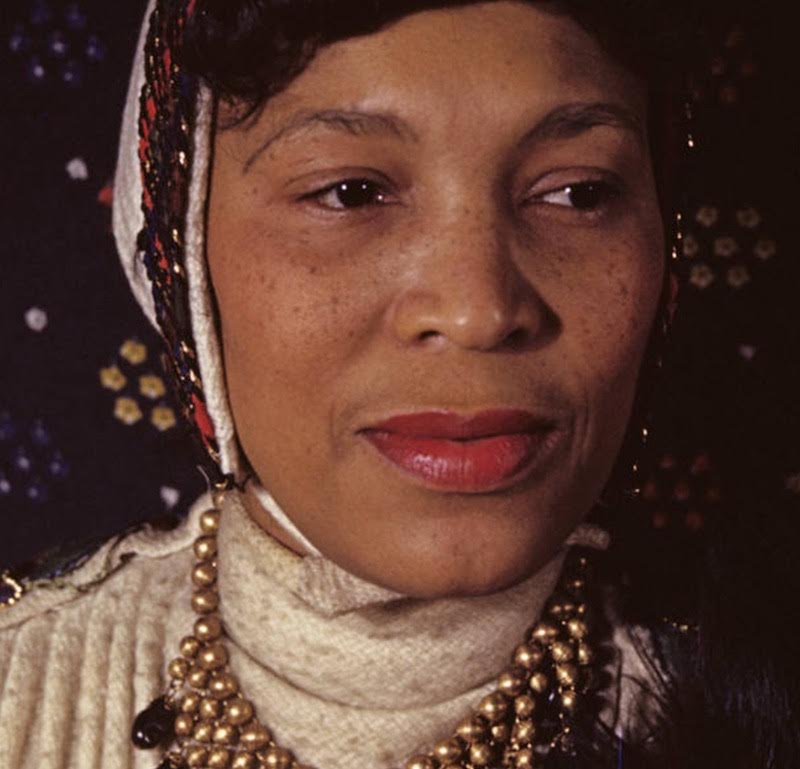Last updated on February 6, 2023
Ayliahna Wilson
Staff Writer
Zora Neale Hurston was a woman of many talents who was mainly known as a novelist. However, many do not know that she was an anthropologist first.
Hurston was believed to be born Jan. 7, 1891 in Notasulga, Ala., to her parents Lucy Ann and John Hurston. However, this date has come into question because Hurston was known to give different ages as it benefited her.
Both of Hurston’s parents were enslaved before the family relocated to Eatonville, Fla.
Unfortunately, her mother passed away in 1904 when Hurston was only 13 years old. Her father quickly remarried but Hurston and her stepmother did not get along. Because of this, her father sent her to live in Jacksonville, Fla. with other relatives.
Hurston did not let her circumstances hinder her growth and in 1916 she traveled the country as a maid for a musical theatre troupe. After 18 months, Hurston quit her job and decided to finish high school in Baltimore.
Upon graduation she enrolled in her first semester of college at Howard University in 1919. During her matriculation at Howard, she became a member of Zeta Phi Beta Sorority, Inc. and earned her Associate’s Degree in 1920.
According to an article in the Washington Post, in the late 1920s, Hurston returned to her hometown of Eatonville, to document the culture of black men who told stories at the local general store.
White anthropologists had long struggled to document Black folklore. Black people, Hurston wrote, mostly distrusted white scientists who sought to study them and collect their culture, songs and knowledge. “We are a polite people and we do not say to our questioner, ‘Get out of here!’” Hurston wrote. “We smile and tell him or her something that satisfies the white person because, knowing so little about us, he doesn’t know what he is missing.”
As a novelist, Hurston dedicated her writing to portraying black culture and feminism issues in ways that other writers were not at the time. Her main focus was shifting how the literary world and society viewed black individuals and their experiences.
She continued her studies after winning second place in a short story contest, which gave her a scholarship to Barnard College. Hurston was the first black woman to attend and graduate from Barnard, where she earned her bachelor’s degree in anthropology in 1925.
Following her writing dreams, she and close friend and fellow author Langston Hughes created Fire, a black literary magazine. She wanted to publish work that did not stereotype blacks and chronicled more than just the tragic stories that surround the race.
Hurston was acknowledged as the most published black female author of the Harlem Renaissance. This era recognized blacks for their accomplishments in music, writing, and acting. Her novel “Their Eyes Were Watching God” became one of Hurston’s most profound pieces of work.
The novel is based on a black woman finding herself, while also longing for love and independence. Feminist issues were not given much attention in the 1930’s and this novel was filled with real and raw emotions of what life was like for black women during that time period.
It delves deep into gender roles, love, and race; all topics that could be seen as taboo, especially coming from a black woman’s perspective.
Her style of work was heavily critiqued by black male authors as they argued there were more important issues to discuss. They insisted that issues involving race and white supremacy were the biggest problem at hand.
Grace Ann Elinski, a junior English major from Jackson, Miss., said she reads a lot and finds Hurston’s writing inspiring.
“I love Zora Hurston because she was an advocate for women and she’s a brilliant writer,” Elinksi said. “My favorite piece by her is ‘Sweat’.”
Hurston, aware that racism was a huge issue, decided she would portray those issues as they appeared but also wanted to write about black people in a way other writers were not. Racism and failures did exist and she never tried to hide that in her work, just expand the narrative.
Hurston wanted black people to be portrayed as persistent, hopeful, and hardworking, that’s what she wanted literature to explore. She helped the world know that despite the hardships black individuals face, they’re still people.
Despite her hard work she fell into poverty until she passed away in 1960 in her Florida home.
The world would almost forget about her work until Alice Walker, the author of “The Color Purple”, dove deep into Hurston’s work, soon naming Zora Neale a “A Genius of the South.”
Walker went on to write an essay “In Search of Zora Neale Hurston” which gave Hurston the attention she deserved. Although she has now passed, her work and determination will always be remembered.
“If you haven’t got it, you can’t show it. If you have got it, you can’t hide it.” – Zora Neale Hurston





Be First to Comment